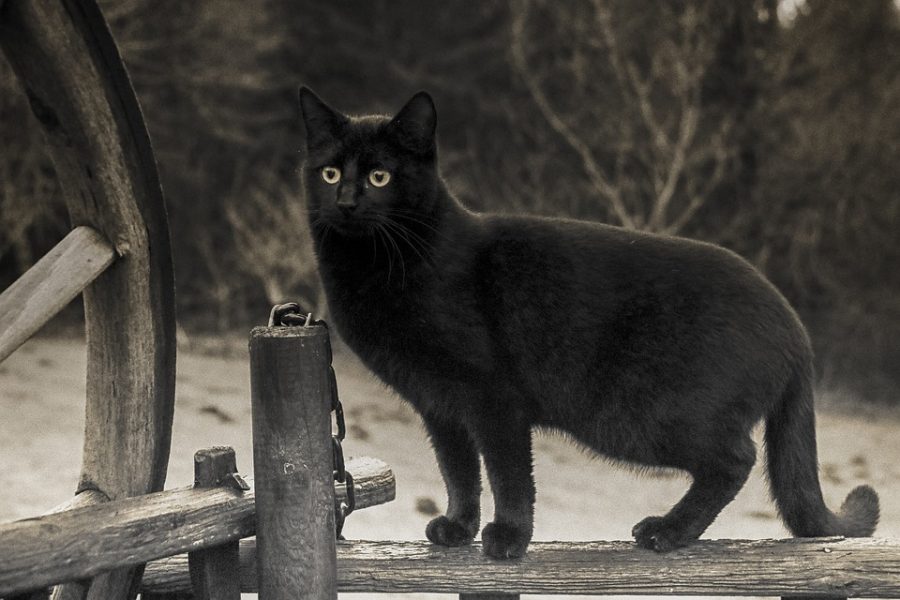Conspiracy Column: Superstition, Tradition or Truth?
In the realm of superstition, black cats are thought of as “bad luck” and popular symbols of spirituality. Because of their history with witchcraft, black cats are also seen as mischievous and spooky creatures.
September 25, 2021
Superstition: a widely held but unjustified belief in supernatural causation, leading to certain consequences of an action or event, or a practice based on such a belief. Four leaf clovers, black cats, rabbit’s feet, and even a lucky pair of socks are symbols of superstitious beliefs. But the real question: is any of it true?
Superstitions can stem from traditions passed down through generations and cultures. For example, in the early days of the American colonies, witchcraft was a huge fear to the religious settlers. The idea that black cats could be deceptive witches in animal form began to spread, and 400 years later, there are still suspicions around them. Ancient Egyptian culture believes that if one walks underneath a ladder, one might see a god climbing on it and bring negative repercussions on oneself. Many common superstitions are rooted in beliefs from centuries ago that have lost their origins over time.
Another form of superstitious beliefs are those in the performance realm. Before a theatrical performance castmates will wish each other good luck by saying “break a leg”, as a good omen to the show. In sports, players and coaches might believe in pre-game rituals. Daniel Cortright, Girl’s Basketball Head Coach and Assistant Football Coach here at Millbrook, said, “We have pre-game things that we do such as having the pre-game meal. I let the girls hang out when I’m coaching basketball, and then of course we’ll meet. If one of those three things are missing, then I guess that would be superstition because then I feel like we’re off.” These rituals cannot be statistically proven to improve performance, but they are things that bring peace of mind and solace to the team.
Superstitions can also be very personal and have meanings rooted in experience rather than tradition. The TV Series Everybody Hates Chris focuses on this kind of belief in an episode titled “Everybody Hates Superstition.” Chris, the main character, borrows his father’s lucky socks and good things start happening to him. Chris starts to believe that the only way he can have a good day is if he wears these socks. Whether or not this is true, Chris has to learn that superstition is all about perspective. One person’s lucky pair of socks can be just a pair of socks to someone else.
Superstitions are not based in fact, meaning that their effectiveness is subjective. Believing or not believing is up to the individual. What do you think: have superstitions survived because they give us comfort or consequence?












